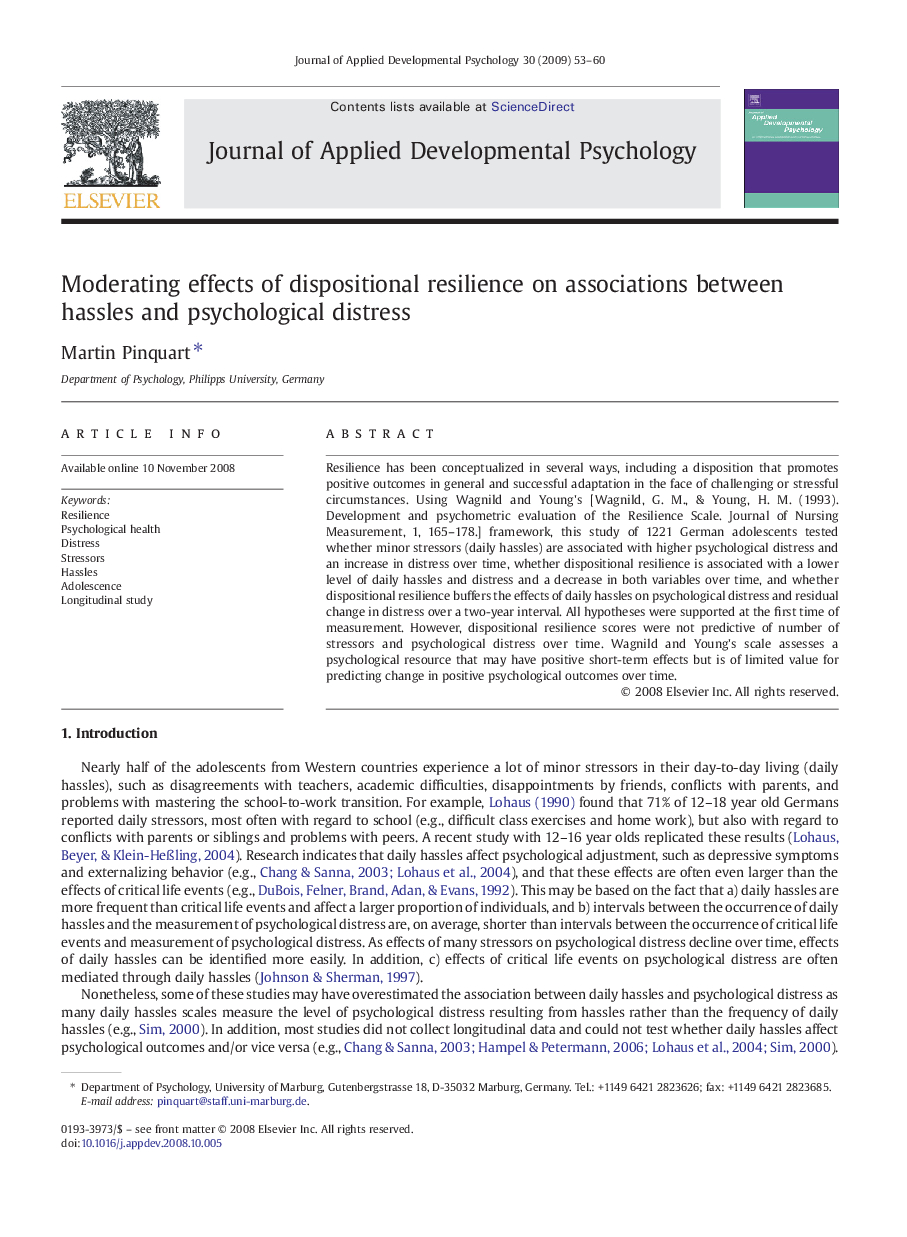| Article ID | Journal | Published Year | Pages | File Type |
|---|---|---|---|---|
| 360086 | Journal of Applied Developmental Psychology | 2009 | 8 Pages |
Resilience has been conceptualized in several ways, including a disposition that promotes positive outcomes in general and successful adaptation in the face of challenging or stressful circumstances. Using Wagnild and Young's [Wagnild, G. M., & Young, H. M. (1993). Development and psychometric evaluation of the Resilience Scale. Journal of Nursing Measurement, 1, 165–178.] framework, this study of 1221 German adolescents tested whether minor stressors (daily hassles) are associated with higher psychological distress and an increase in distress over time, whether dispositional resilience is associated with a lower level of daily hassles and distress and a decrease in both variables over time, and whether dispositional resilience buffers the effects of daily hassles on psychological distress and residual change in distress over a two-year interval. All hypotheses were supported at the first time of measurement. However, dispositional resilience scores were not predictive of number of stressors and psychological distress over time. Wagnild and Young's scale assesses a psychological resource that may have positive short-term effects but is of limited value for predicting change in positive psychological outcomes over time.
